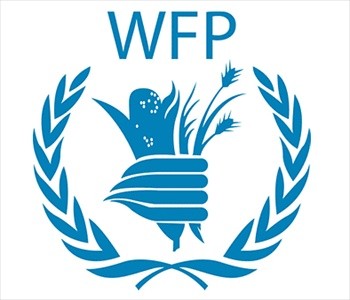This website uses cookies so that we can provide you with the best user experience possible. Cookie information is stored in your browser and performs functions such as recognising you when you return to our website and helping our team to understand which sections of the website you find most interesting and useful.

Who We Are
The World Food Programme are the world’s largest humanitarian agency aiming to bring food assistance to more than 80 million people in 75 countries.
As the United Nation frontline agency in the fight against hunger, WFP is at a critical point in its history where its next steps can help pave the way for achieving zero hunger. While the organization continues to provide world class emergency response, it is focusing its efforts to help prevent hunger in the future. We do this through programmes that use food as a way to build assets, spread knowledge and nurture stronger, more dynamic communities. This helps communities become more food secure.
WFP is equipping its workforce with capabilities in a range of areas, including Food Security Analysis, Nutrition, Food Procurement and Supply Chain to ensure that the best solutions are delivered for the children, women and men whom we serve.
Careers that save lives
Join our mission to end world hunger
The World Food Programme is a leader in the global movement to achieve Zero Hunger. In 80 countries our innovative hunger solutions are benefiting some 80 million people. Join us to make a difference.

Why work at the World Food Programme?
1. Meaningful and impactful careers
Our day to day work makes a difference in the lives of the people we serve.
2. Continuous learning and training
We provide learning tools for our staff to continually develop their careers.
3. Multicultural and stimulating working environment
We encourage gender and cultural diversity to make our teams stronger.
Chat to WFP recruiters at our next online careers event.

Every day too many men and women across the globe struggle to feed their children a nutritious meal. In a world where we produce enough food to feed everyone, 815 million people – one in nine – still go to bed on an empty stomach each night. Even more – one in three – suffer from some form of malnutrition.
Eradicating hunger and malnutrition is one of the great challenges of our time. Not only do the consequences of not enough – or the wrong – food cause suffering and poor health, they also slow progress in many other areas of development like education and employment.
In 2015 the global community adopted the 17 Global Goals for Sustainable Development to improve people’s lives by 2030. Goal 2 – Zero Hunger – pledges to end hunger, achieve food security, improve nutrition and promote sustainable agriculture, and is the priority of the World Food Programme.
Every year The World Food Programme reaches 80 million people in 80 countries with life-saving food.
Company Statistics
Date Established
Headquarters



